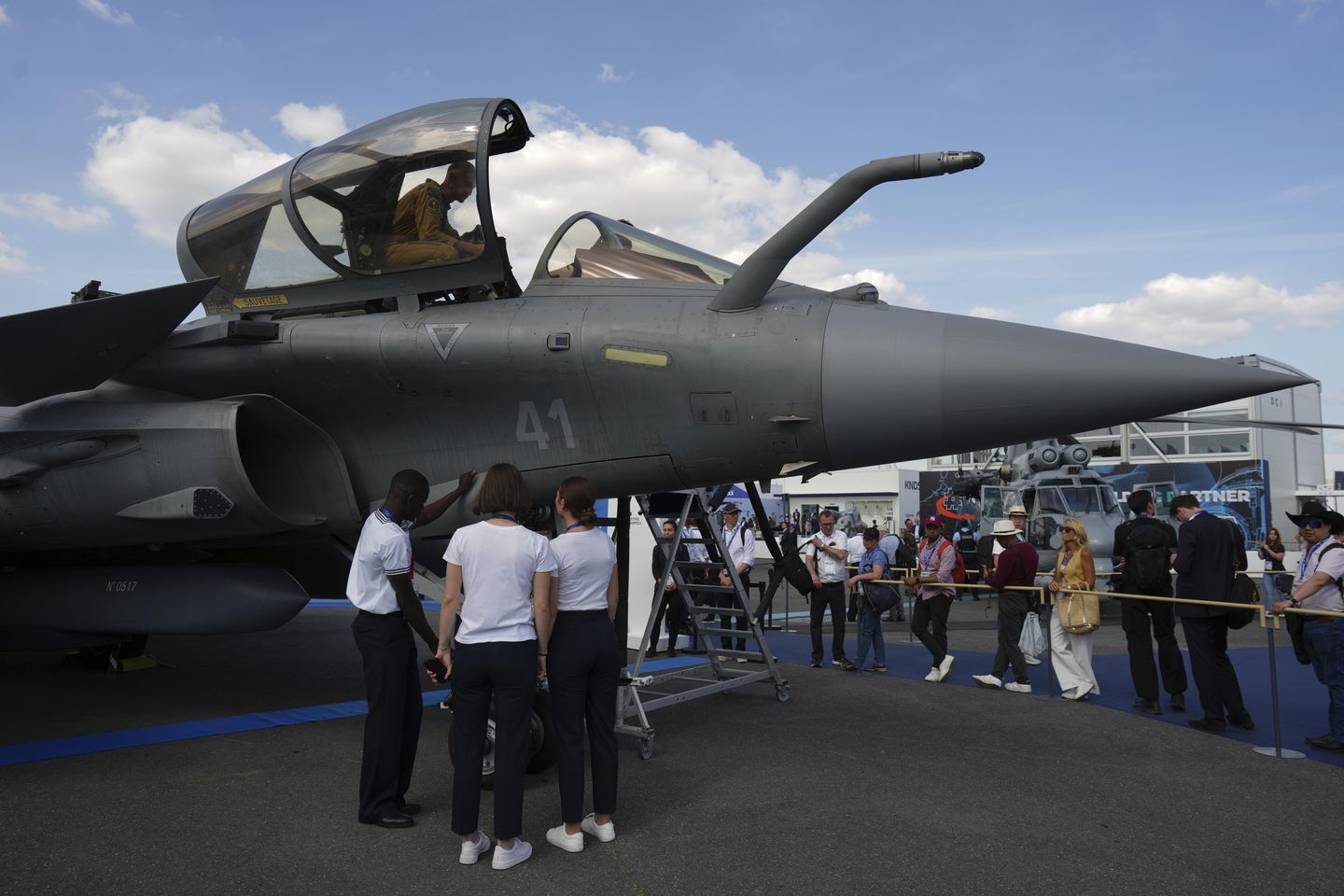
This month’s Paris Air Show has featured numerous emerging technologies, massive business deals with defense industry leaders and geopolitical issues.
On Monday, U.S. defense giant Lockheed Martin touted the completion of Technology Refresh 3, a set of software and hardware improvements meant for the F-35 fighter jet. According to the company, the upgrade will be integrated into the F-35’s Block 4 capabilities.
Lockheed told Paris Air Show attendees that Block 4 will feature over 75 new capabilities, greatly improving the jet’s performance.
“No. 1: all of the sensors improved dramatically. No. 2: the ability to carry more and different types of weapons. And number three: and I think this will become the ultimate game changer, is the additional interoperability features that will allow us to communicate across the domains and be that central node in the battlespace,” J.R. McDonald, vice president of business and development with Lockheed’s F-35 program, told reporters at the show.
Additionally, the company said artificial intelligence would play a key role in Block 4. Lockheed Martin’s “AI fight club” will enhance the F-35’s “collaborative” abilities.
Lockheed’s announcement came as the air show’s organizers erected a large black barrier around the booths of Israeli defense firms.
The barrier reportedly went up on the order of the French government, which refuses to supply Israel with offensive weapons over the Jewish state’s war in Gaza. Air show organizers informed Israeli companies on Sunday that they couldn’t display offensive military equipment, an order that the companies didn’t obey.
The companies said the decision to block off their booths was anti-competitive and antisemitic, pointing to the lack of censorship on the booths of Chinese and Turkish companies.
“This outrageous and unprecedented decision reeks of policy-driven and commercial considerations. This comes at a time when Israel is fighting a necessary and just war to eliminate the nuclear and ballistic threat facing the Middle East, Europe and the entire world,” the Israeli Defense Ministry wrote in a statement.
The Israeli defense minister appealed the order on Monday but was denied by a French court on Tuesday. Organizers for the air show said Monday they were in talks with the Israeli firms to ensure they have a chance to participate and show off their defensive weapons.
U.S. defense start-up Anduril had its inaugural visit to the Paris Air Show this year, signing a major partnership with German defense firm Rheinmetall. The deal, announced Wednesday, will see the two companies working together to develop a European counterpart to Anduril’s Barracuda cruise missiles and Fury drones.
The deal marks Anduril’s first major expansion into the European market and could prove a lucrative move for the young defense firm. According to reports, the deal will eventually provide Germany and other European nations with a cheap, domestically produced alternative to U.S.-manufactured drones. Anduril previously signed a deal with the U.S. Air Force to build a collaborative version of the company’s Fury drone.
The show also revealed more details on the simmering feud between European aerospace companies over the development of Future Combat. The project is a joint effort among three European companies: Germany’s Airbus, France’s Dassault Aviation and Spain’s Indra Sistemas.
The three companies aim to build a sixth-generation fighter but have disagreed over how to share the load. Dassault CEO Eric Trappier has said he wants the French company to lead the effort and has threatened to withdraw from the project due to Germany and Spain’s influence.
Airbus’ head of air power told reporters at the Paris Air Show that his company doesn’t object to France leading the mission but insisted on an equal sharing of work. He agreed that the project is complicated, pointing out that all private companies have an interest in securing their intellectual property.
The spat could prove dangerous for European countries as their leaders deal with Russian aggression and an increased NATO defense spending target.
Meanwhile, Airbus inked a massive deal with Vietnamese budget airline Vietjet on Tuesday. The deal will see the company deliver 150 single-aisle A321neo jets to Vietjet, expanding Airbus’ already massive share of the Asian country’s market. Airbus supplies nearly 90% of all jets in Vietnam.
The deal could be worth over $9 billion, according to some estimates.

















